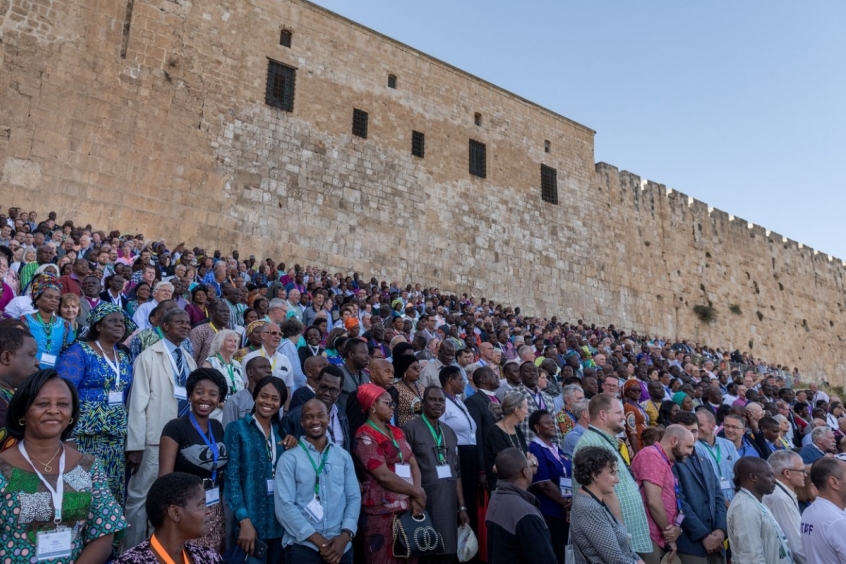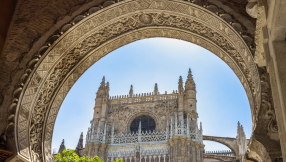
Suggestions that a fellowship of orthodox Anglicans is fuelling divisions in the worldwide Anglican Communion have been strongly criticised.
The Evangelical Fellowship in the Anglican Communion (EFAC) has written to General Secretary, the Archbishop Josiah Idowu-Fearon, asking him to explain comments he made during an address to the Anglican Consultative Council in Hong Kong, which drew to a close on Sunday.
In an address to ACC-17, the Archbishop had asked how the communion could prevent a schism over the issue of homosexuality and specifically, how it should respond to GAFCON, a fellowship of orthodox Anglicans established in response to the liberal actions of several provinces.
He said that if the purpose of GAFCON was about the renewal of the Church, then there was "nothing" to criticise about it.
"If that is what GAFCON is about then it is right for the communion to welcome it as an influence for good," he said.
However, he said that GAFCON appeared to be duplicating some of the work already going on in the communion and suggested that it was creating confusion.
He suggested one way forward as the example of EFAC, which had been dissuaded from breaking away from the Church of England in the 1960s by the late Rev Dr John Stott. He also cited charismatic churches that were, in spite of their different perspectives, "still within the communion."
"If GAFCON would just be that type of movement, which is what we are praying for, I think it should be embraced," he said.
"The difficulty arises when GAFCON involves itself in the structures of the communion in a way that causes confusion and potential division."
Elsewhere in his address, the Archbishop criticised orthodox primates who have snubbed invitations from the Archbishop of Canterbury, Justin Welby, to visit his official residence at Lambeth Palace.
"It is disheartening to hear a primate give one excuse or other to avoid this hospitality," he said.
He also complained that "deliberate ignorance" and "self-made Anglicanism" were posing further problems for the communion.
"How do we fight this ignorance that is chewing us up and creating further divisions within the communion?" he asked, adding that in some provinces there was "no debate" around points of theology.
"When you get to some of them you think — and pardon me if some people are offended by this — you would think we are a Roman Church, where decisions are taken and passed down," he said.
"There are no debates, and, where you have debates, they are not well informed. This is a major problem."
The Archbishop later apologised to the Vatican representative at the ACC meeting.
In other comments, the Archbishop said he had "difficulty" with the call for some to be invited to next year's Lambeth Conference as full participants "who are clearly not members of the communion", as well as calls to boycott that and other meetings.
"This feels a very long way away from the decision to walk together at a distance taken at the 2016 Primates' meeting," he said.
In a letter to the Archbishop, EFAC said it wanted him to "unpack" his criticism of GAFCON "in circumstances where it is not disputed that the crisis within the Anglican Communion was started by the Episcopal Church (in the USA) acting independently over the consecration of Bishop Gene Robinson and has been driven ever since by the independent actions of the Episcopal Church and other liberal provinces, acting against the advice of the instruments of communion".
The consecration of Robinson as the first openly gay bishop in the US Episcopal Church in 2003 pushed the Anglican Communion to the brink of schism.
EFAC, whose constitution defines Christian marriage as between one man and one woman, said it was "unhelpful" to present Dr Stott's position from the 1960s as a solution to today's issues in the communion.
"The current crisis in the Anglican Communion is caused by a different issue, same-sex marriage and partnerships, an issue on which the views of the Rev Dr John Stott were clear," it said.
It added that there was "no division" between itself and GAFCON on issues of human sexuality and that "any attempt to create division will be resisted prayerfully and strenuously".
"We have asked Archbishop Josiah publicly to correct the false analogy (in the same way as he has corrected his perceived critique of the Roman Catholic Church)," the statement concluded.
The Lambeth Conference brings together all of the current bishops in the Anglican Communion and their spouses around once every 10 years.
GAFCON has called for a boycott of the meeting over the presence of gay bishops and their spouses. Archbishop Idowu-Fearon announced in February that the spouses of gay bishops were not invited due to the strength of feeling on the issue of homosexuality in parts of the communion.
Orthodox Anglicans were upset last week when it emerged that the Anglican Church in North America (ACNA), which broke away from the Episocopal Church over its stance on homosexuality, were invited to attend as observers only.
The Most Rev Foley Beach, Primate of the Anglican Church in North America and Chairman of GAFCON, said: "For the Anglican Church in North America to be treated as mere 'observers" is an insult to both our bishops, many of whom have made costly stands for the Gospel, and the majority of Anglicans around the world who have long stood with us as a province of the Anglican Communion."
At a press conference during a GAFCON meeting in Australia last week, Beach said the group still intended to carry through on its promise to boycott Lambeth 2020.
"They've changed the discussion to inviting the partners of the gay bishops when the issue is the bishops themselves," he said.
"So, the Lambeth conference is in itself in violation of Lambeth 98 1.10 (which affirms the traditional position on marriage) itself by having these bishops in homosexual marriages coming to the conference.
"So, what are we to do with that?"
He added that GAFCON primates had written to the Archbishop of Canterbury outlining their concerns and that they were waiting to "see how he responds".













